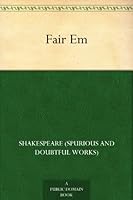Description
" ...]Jonson's earliest comedy, and we have just learned that he was already reputed one of "our best in tragedy." Indeed, one of Jonson's extant comedies, "The Case is Altered," but one never claimed by him or published as his, must certainly have preceded "Every Man in His Humour" on the stage. The former play may be described as a comedy modelled on the Latin plays of Plautus. (It combines, in fact, situations derived from the "Captivi" and the "Aulularia" of that dramatist). But the pretty story of the beggar-maiden, Rachel, and her suitors, Jonson found, not among the classics, but in the ideals of romantic love which Shakespeare had already popularised on the stage. Jonson never again produced so fresh and lovable a feminine personage as Rachel, although in other respects "The Case is Altered" is not a conspicuous play, and, save for the satirising of Antony Munday in the person of Antonio Balladino and Gabriel Harvey as well, is perhaps the least characteristic of the comedies of Jonson. "Every Man in His Humour," probably first acted late in the summer of 1598 and at the Curtain, is commonly regarded as an epoch-making play; and this view is not unjustified. As to plot, it tells little more than how an intercepted letter enabled a father to follow his supposedly studious son to London, and there observe his life with the gallants of the time. The real quality of this comedy is in its personages and in the theory upon which they are conceived. Ben Jonson had theories about poetry and the drama, and he was neither chary in talking of them nor in ...]."





 Amazon UK
Amazon UK